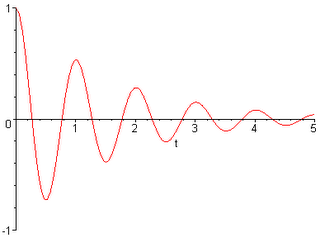The damped system

I was reading Schrödingers "What is life?" and came across his description of the mechanics of the human ear and auditory system. It is a very refined system, but it is limited to detecting a certain range of frequencies. The cilia that detect vibrations do not seem to have a mechanical limit to the same range, so why do we not detect sounds to the same extent as the cilia can be activated? According to Schrödinger, this limit is a result of the integrated damping of the sensory signal. It is possible to conceive another 'wiring' of the system, with less or no damping, and so it would be a far more sensitive system, but unfortunately it would have the side effect of near constant detection of vibrations, which would be literally a very noisy sensory experience. Compare it to playing a piece on the piano with your foot holding the right pedal all the time.
Also, I can not help but compare to the complete human nervous system. Without the automatic damping (e.g. the subconscious filtering) of sensory input from touch and pressure on the skin, muscle movement, temperature, sound, vision, intestines, it is difficult to imagine the brain spending time on prolonged intellectual activities. An exhaustive exercise, really.
Labels: auditory, detection, ear, exhausting, experience, nervous system, Schrödinger, sensory
